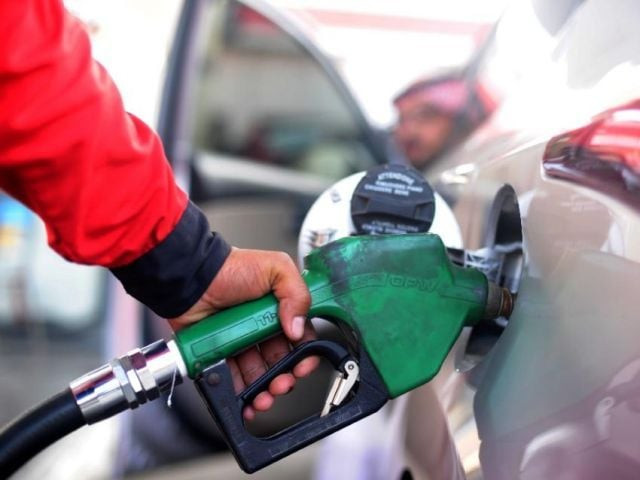Govt cuts petrol, diesel prices by Rs5
Ogra had recommended Rs10.77 and Rs7.77 per litre reduction in the rates of the two products respectively

Instead of passing full relief to the people, the federal government on Wednesday only reduced the rates of petrol and high speed diesel by Rs5 per litre “in view of the declining price trend of petroleum products ” across the world.
The Oil and Gas Regulatory Authority (Ogra) had proposed a reduction in prices of petroleum products by Rs8 to 10 per litre. Ogra had recommended Rs10.77 and Rs7.73 per litre reduction in the prices of petrol and high-speed diesel (HSD), respectively.
However, the government slashed the price of petrol and HSD by Rs5, kerosene oil by Rs7, and light diesel oil (LDO) by RsRs7.1 per litre.
After the reduction, the new price of petrol has come down to Rs140.82, HSD to 137.62, kerosene oil to Rs109.53, and LDO to Rs107.06 per litre. Petrol is used in motorcycles and cars. Consumers in Punjab were already using imported gas. The Sui Southern Gas Company (SSGC) had also suspended gas supply to CNG stations in Sindh and Balochistan.
Read more: Petroleum prices likely to go up again as govt increases PDL
HSD is widely used in transport and farm sectors. Kerosene oil is used in remote areas for cooking where LPG is unavailable. LDO is used in industries. The government has increased General Sales Tax (GST) on petrol by Rs4.07 per litre from Rs2.34 per litre (1.63%) to Rs6.41 (4.77%).
Similarly, the dealer margin on petrol has been increased by Rs0.99 per litre. The oil marketing companies’ (OMC) margin has been jacked up by Rs0.71 per litre. On HSD, the government has decreased its price by Rs5 per litre only and adjusted the remaining in the GST and petroleum margin. The GST on HSD has been increased by Rs1.19 per litre from Rs10.49 per litre (7.37%) to Rs11.68 per litre (9.08%).
Similarly, the dealer margin on HSD has been jacked up by Rs0.83 per litre. The OMC margin has been hiked by Rs0.71 per litre. Shortly before the announcement, Special Assistant to the Prime Minister for Political Communication Dr Shahbaz Gill had tweeted that the public would soon receive "good news" about petrol prices.
A Finance Division handout read the government had decided to revise the existing prices "in view of the declining price trend of petroleum products in [the] global market and transform the impact to the masses". The new prices will be effective from Thursday (today).
Earlier this week, Adviser to the Prime Minister on Finance and Revenue Shaukat Tarin had said that following the drop in prices in the global market, petrol prices in Pakistan would also undergo a reduction. It may be noted that petroleum prices in Pakistan had touched an all-time high with petrol being sold at Rs146 per litre.
Last month, inflation skyrocketed to 11.5% -- the fastest pace in 21 months -- because of the government’s administrative decisions coupled with steep currency depreciation, which was making food, electricity and transport unaffordable for the common man.
Also read: Tarin hints at relief on fuel prices
The Consumer Price Index (CPI), on a month-on-month basis, jumped 3% - the highest monthly reading in the past 13-and-a-half years, reflecting a massive increase in prices. On November 5, the government had jacked up the prices of petroleum products by up to Rs8.14 per litre on the pretext that the earlier relief provided to the consumers had dented the fixed levy budget during the first quarter of fiscal year 2020-21 by Rs132.5 billion.
The new price of petrol was Rs145.82 per litre after an increase of Rs8.03 against the previous Rs137.79. Similarly, HSD had risen by Rs8.14 to Rs142.62 per litre from Rs134.48.
The rate of kerosene oil was increased by Rs6.27 to Rs116.53 per litre as against Rs110.26, while that of LDO had shot up to Rs114.07 per litre from Rs108.35. On October 30, PM Imran had turned down a proposal of Ogra for increasing fuel prices from November 1.
However, the prices of the petroleum products remained unchanged for the second half of November, as PM Imran rejected the recommendations for any increase in their prices.



















COMMENTS
Comments are moderated and generally will be posted if they are on-topic and not abusive.
For more information, please see our Comments FAQ